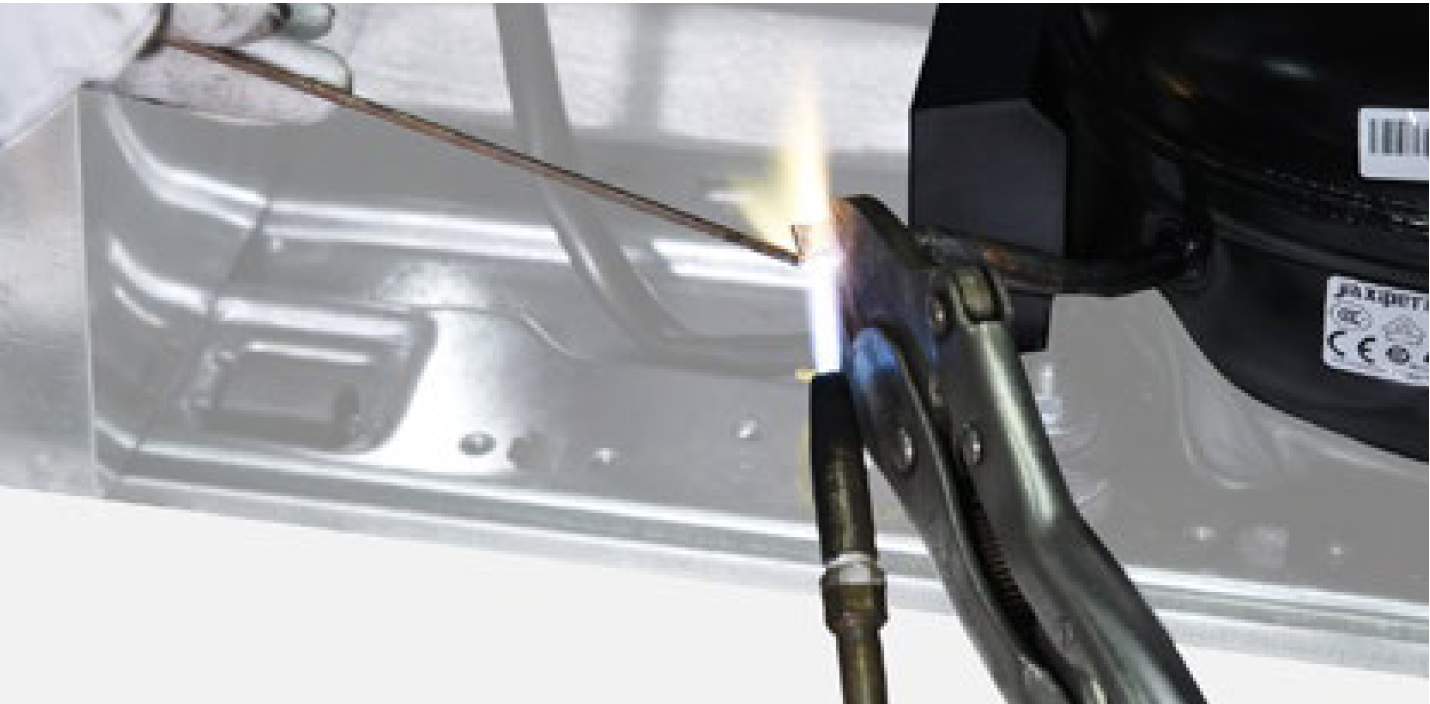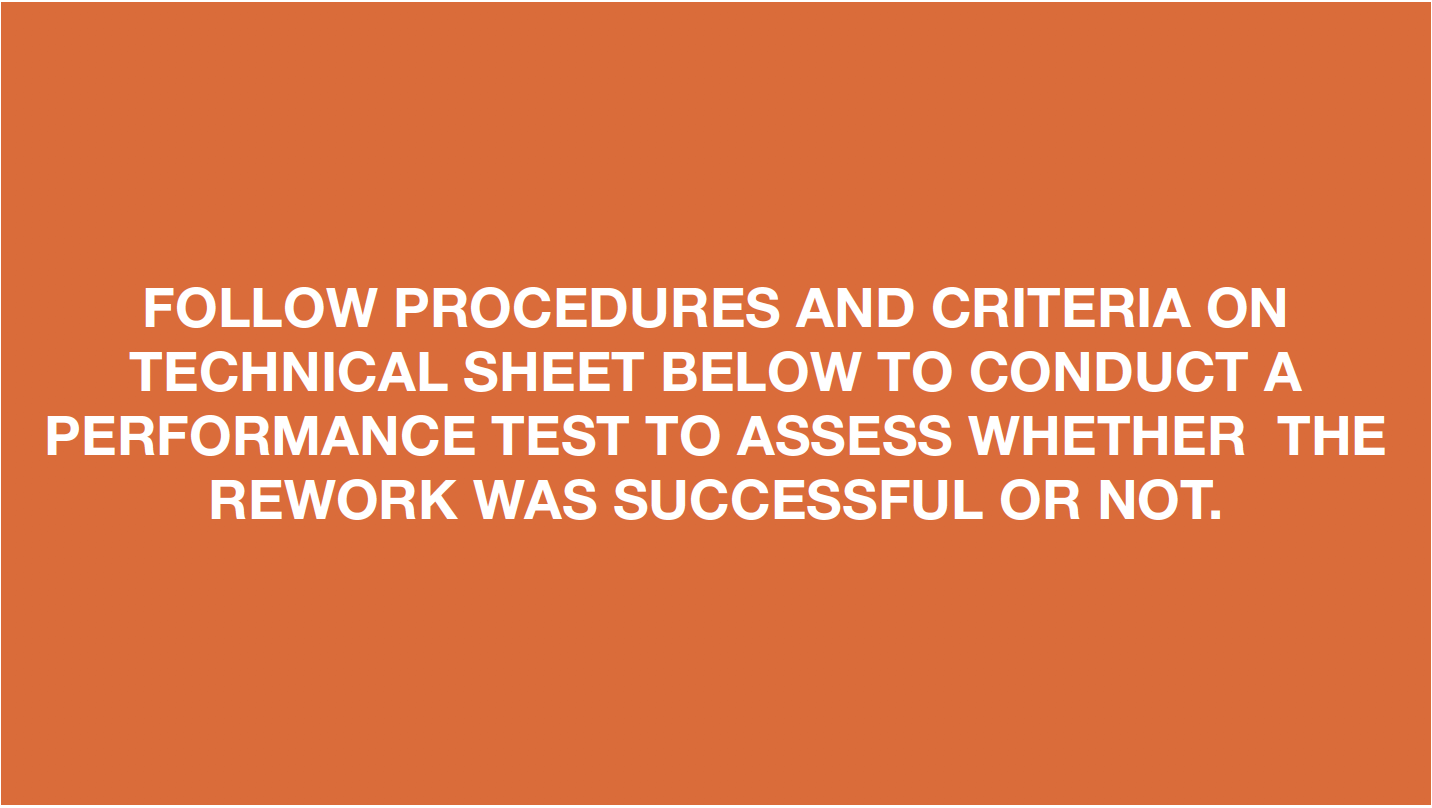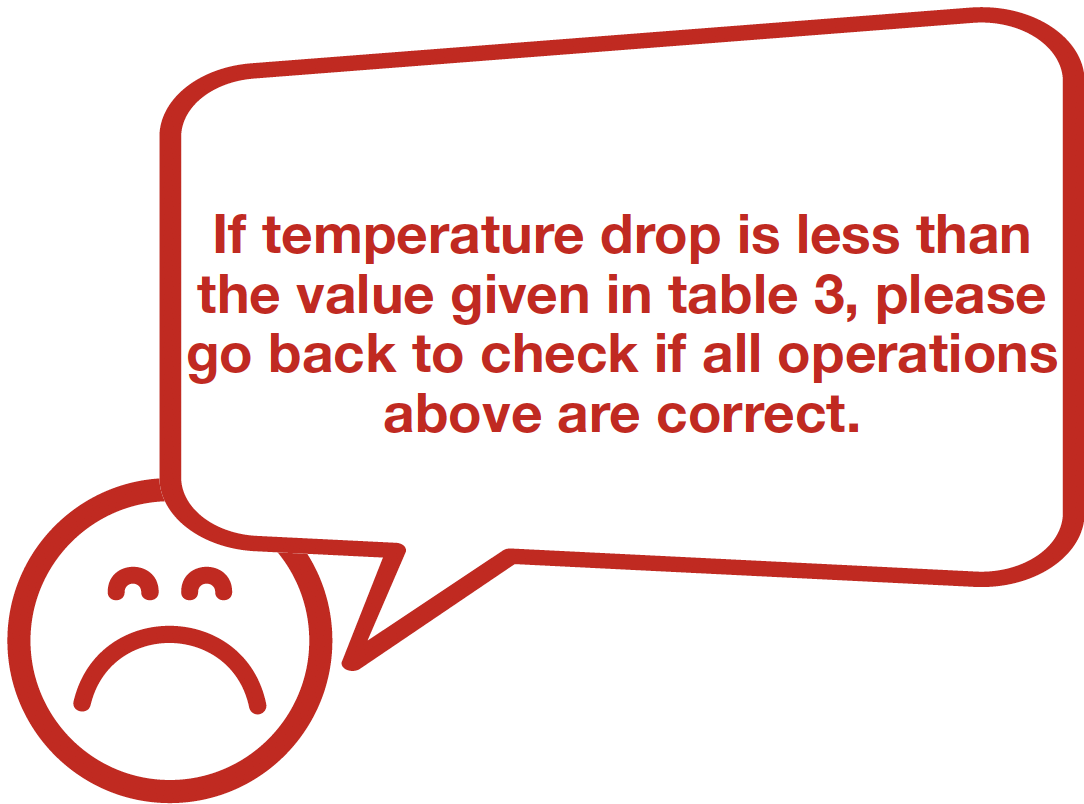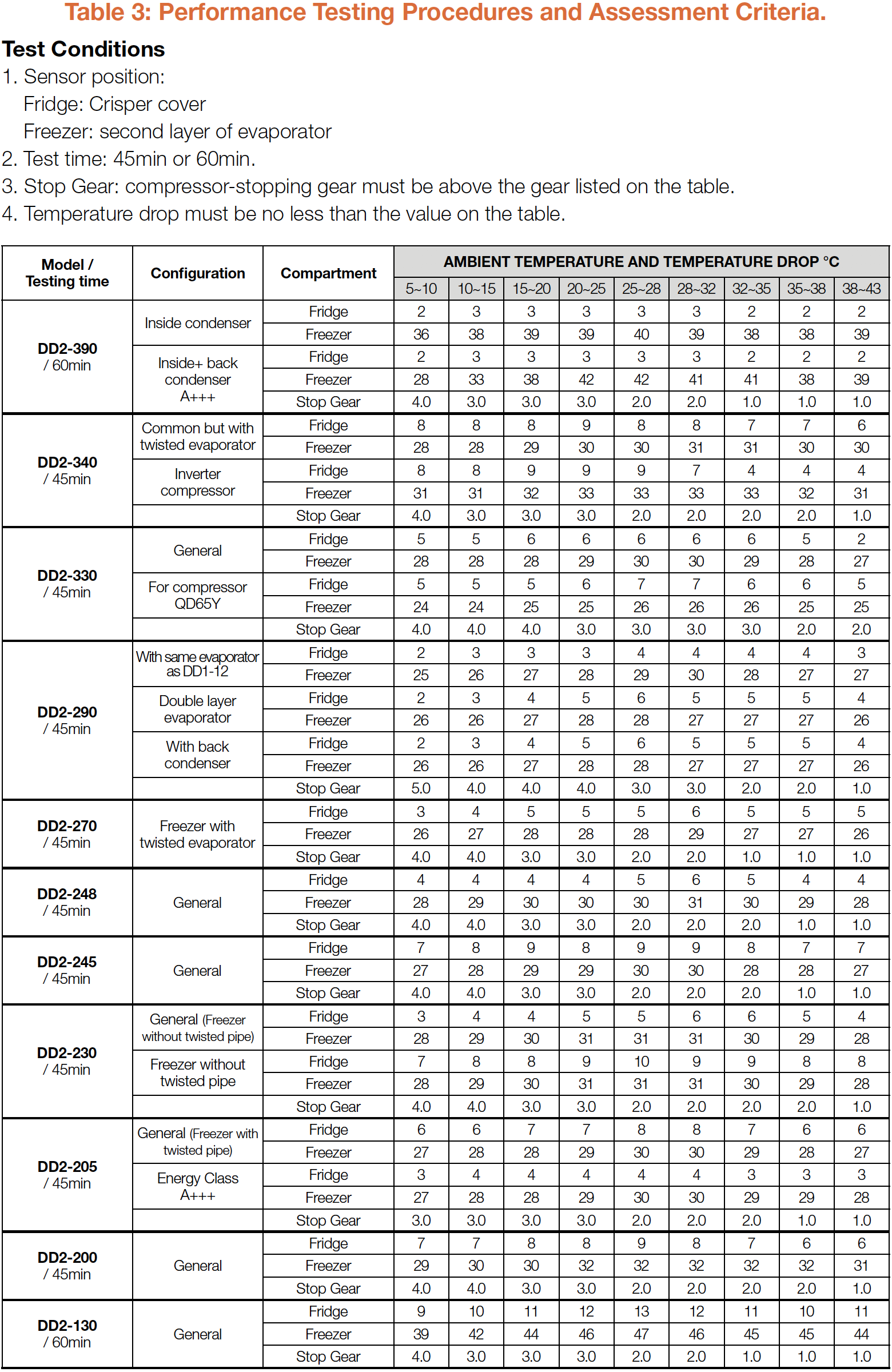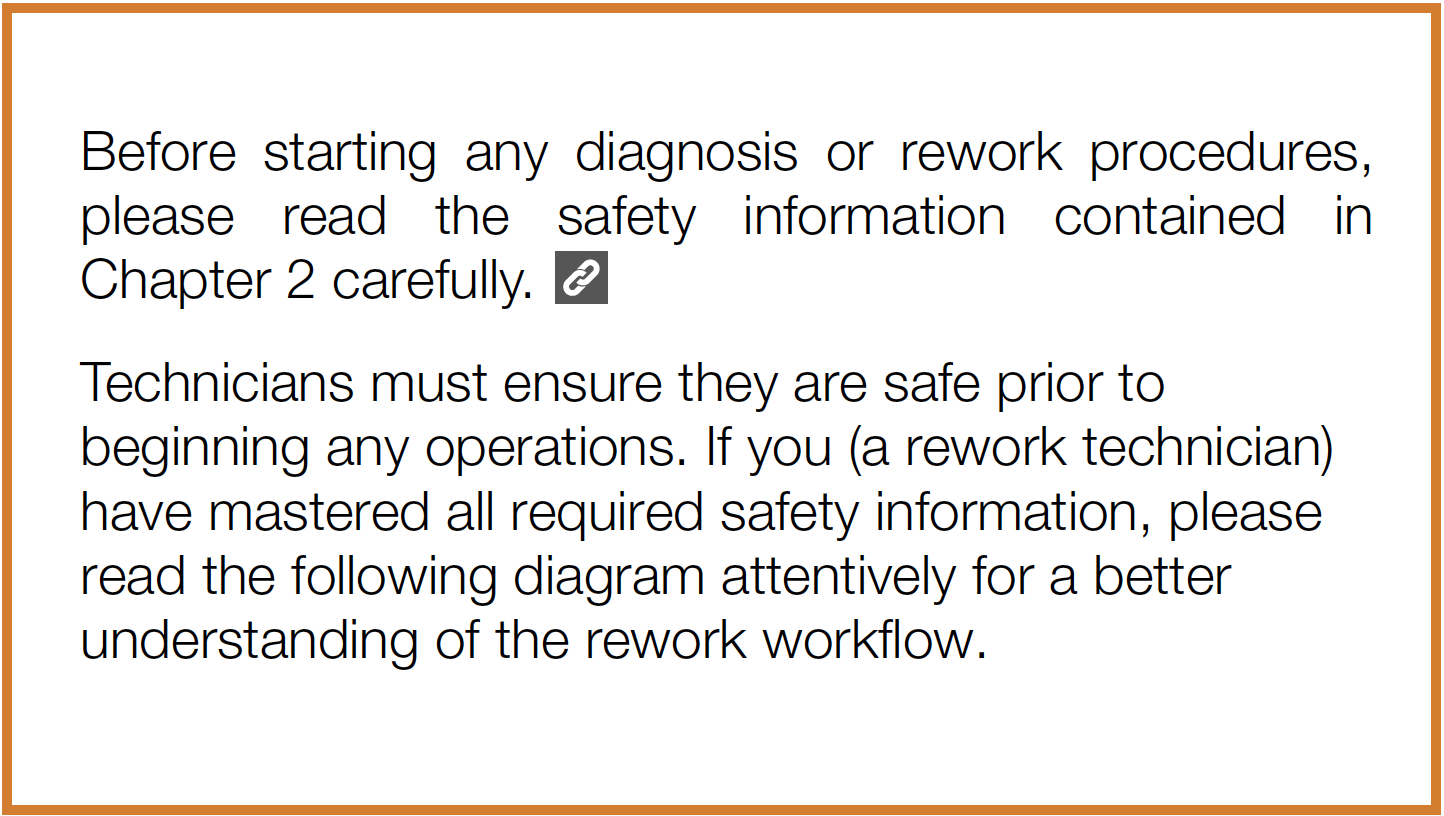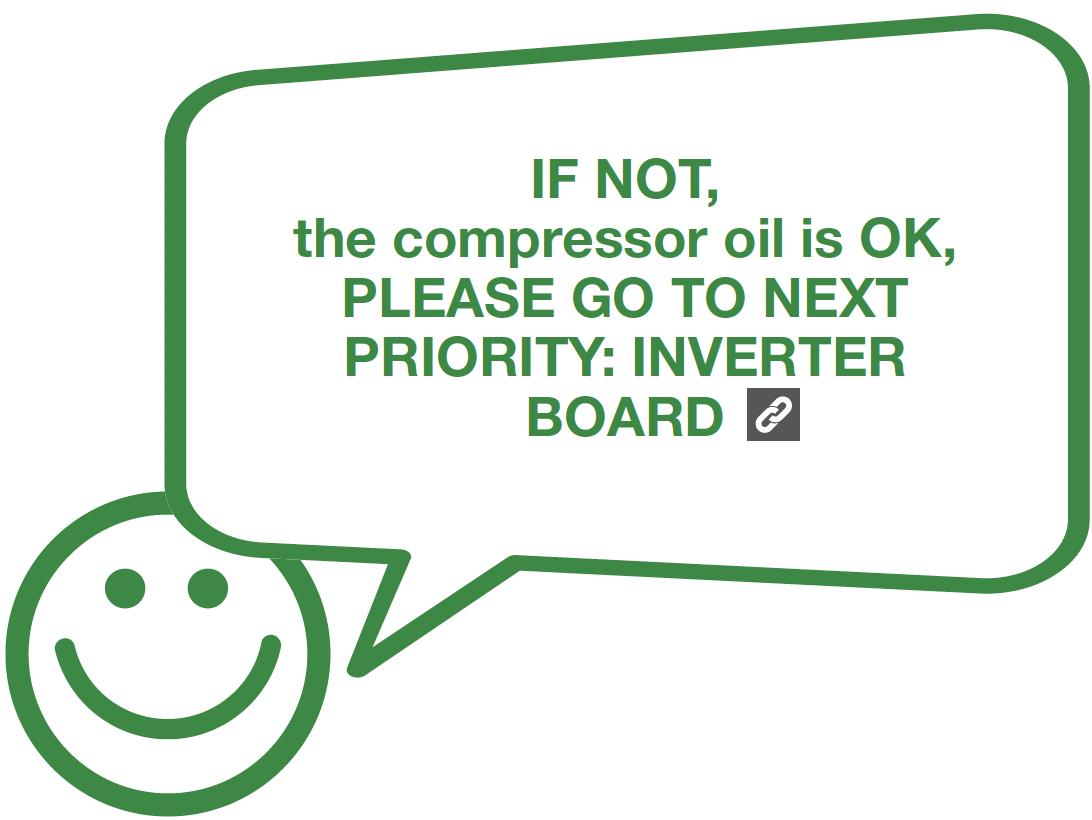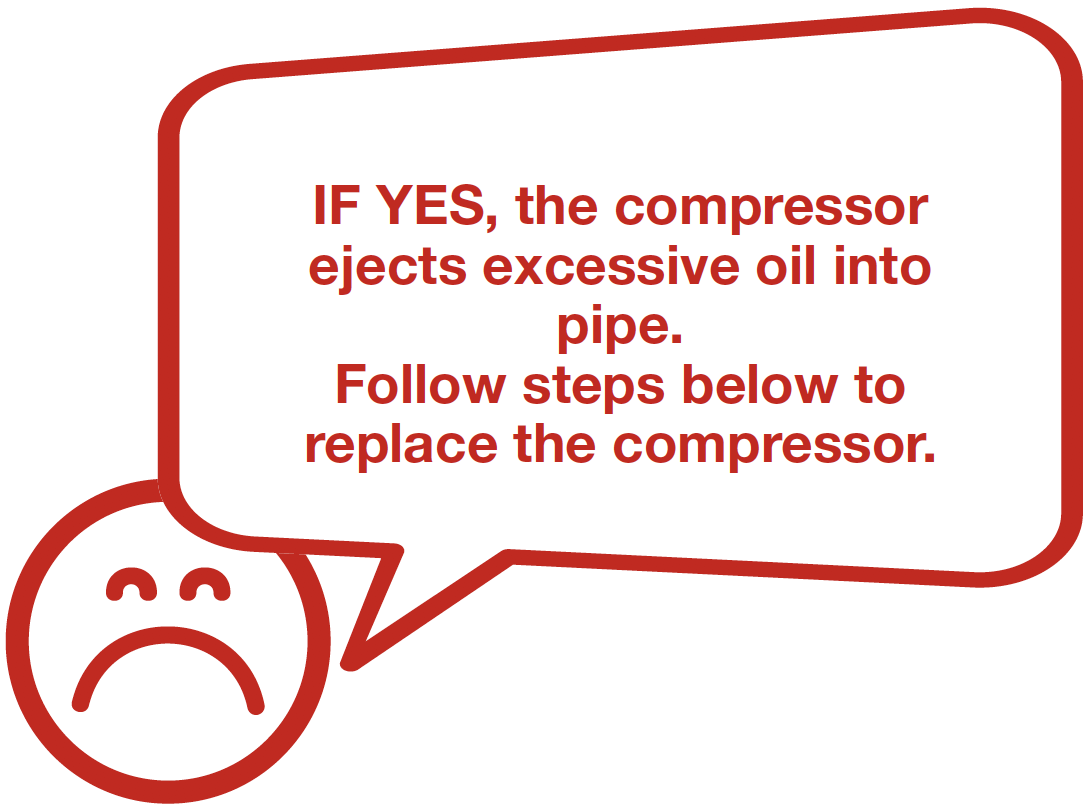

Step 1
Discharge refrigerant. Cut off the charging tube with pliers.
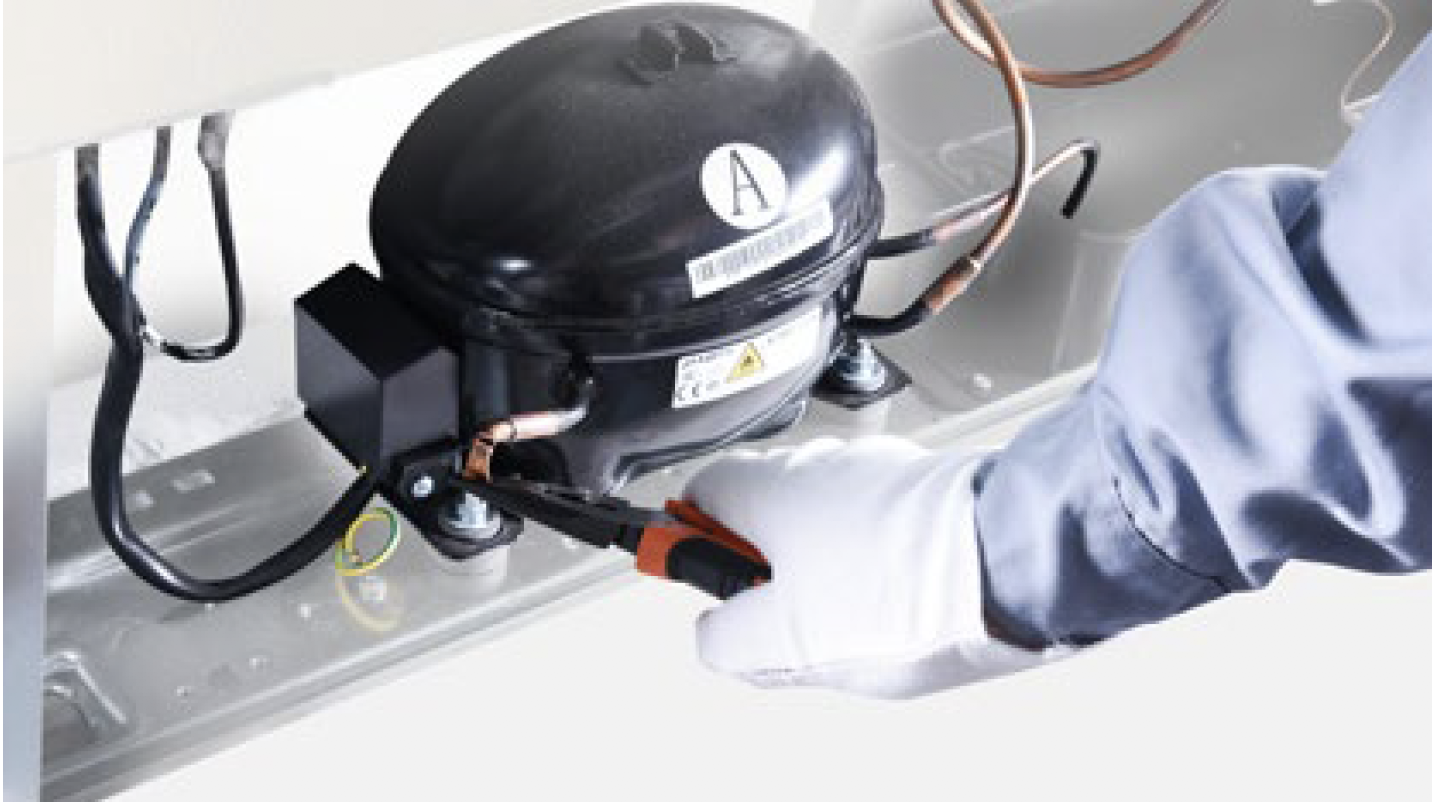
Step 2
Release all refrigerant toward the exhaust vent.
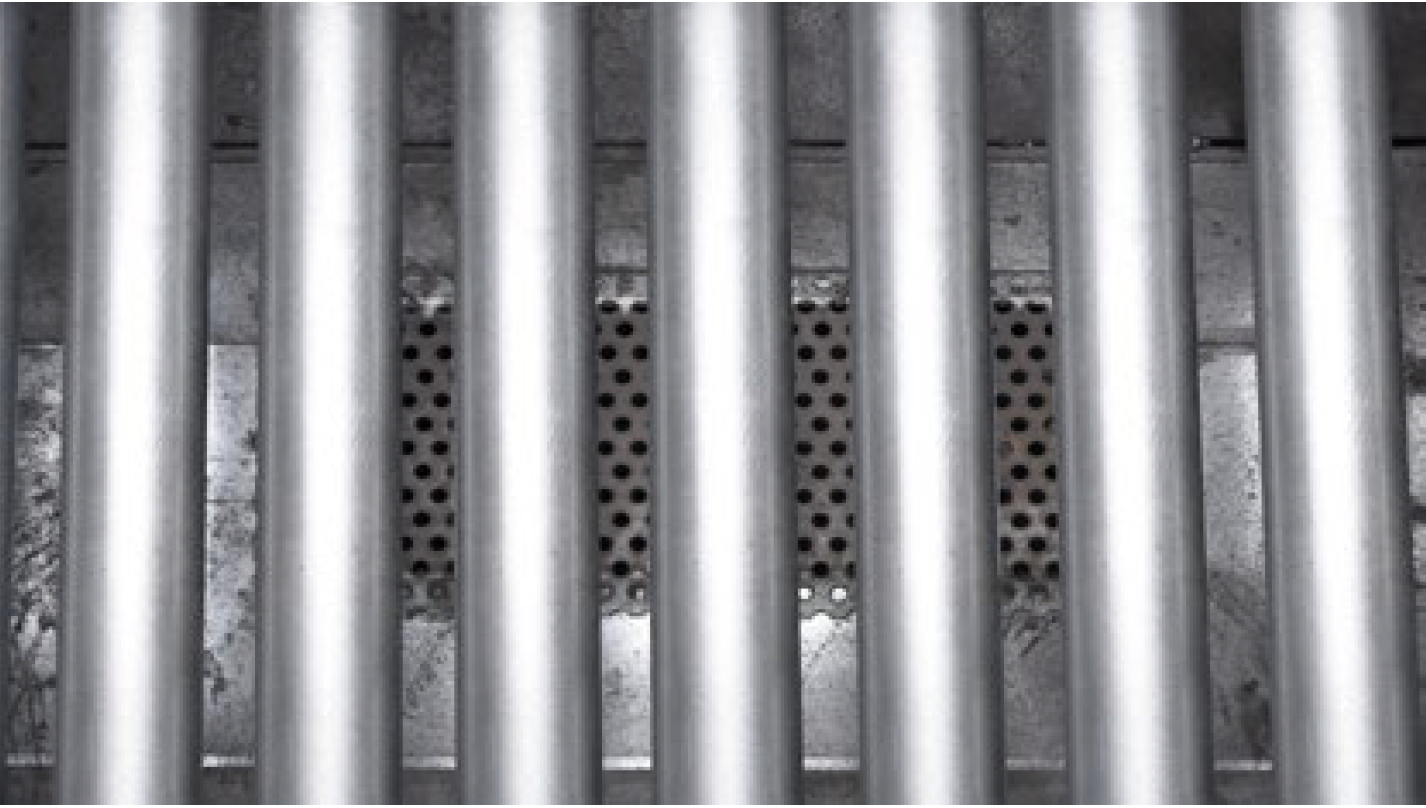
Step 3
Melt brazing material with flame and pull out processing tube using a pair of pliers.

Step 4
Re-braze a copper tube onto compressor processing tube. Click below link to get more details for brazing requirements, go to Annex B1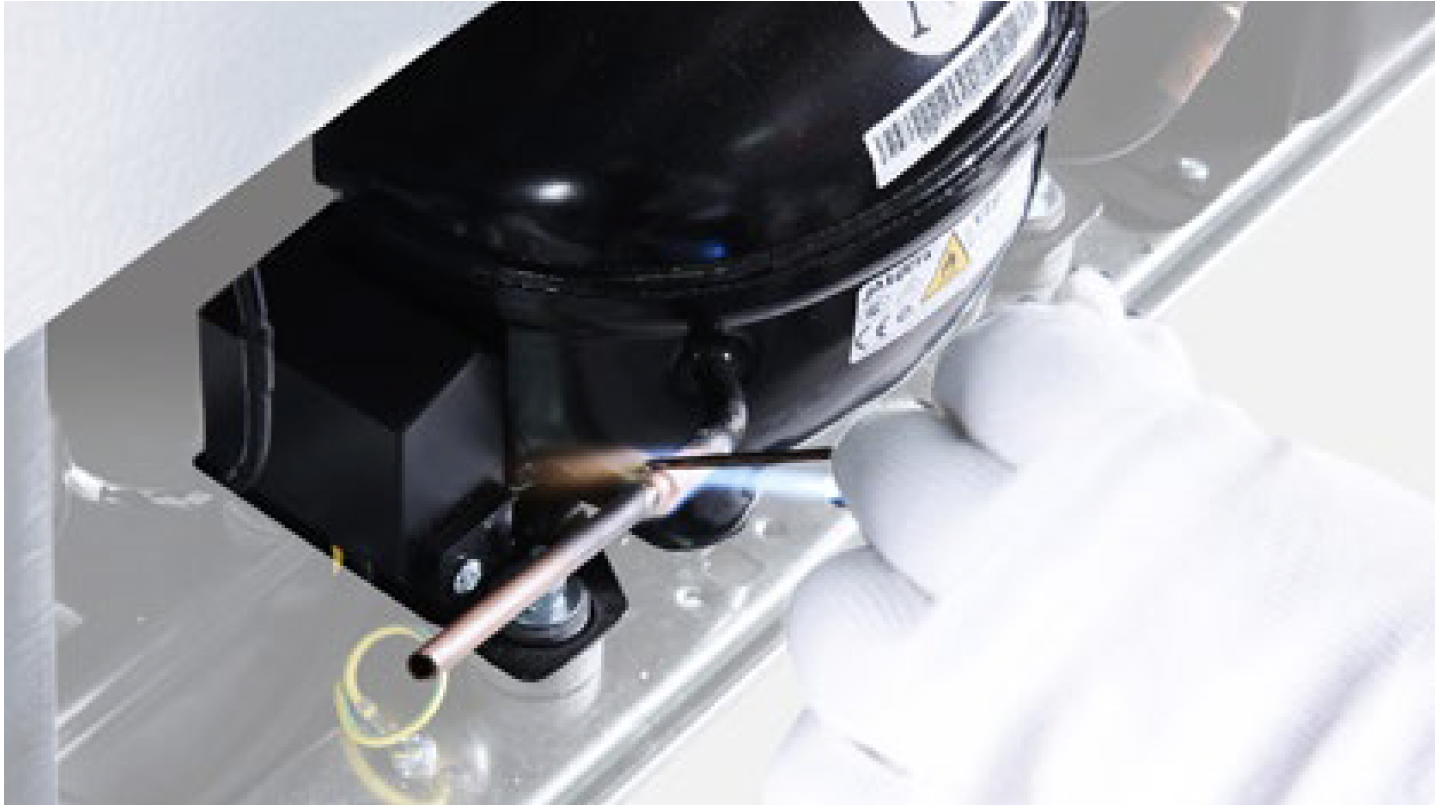
NOTE
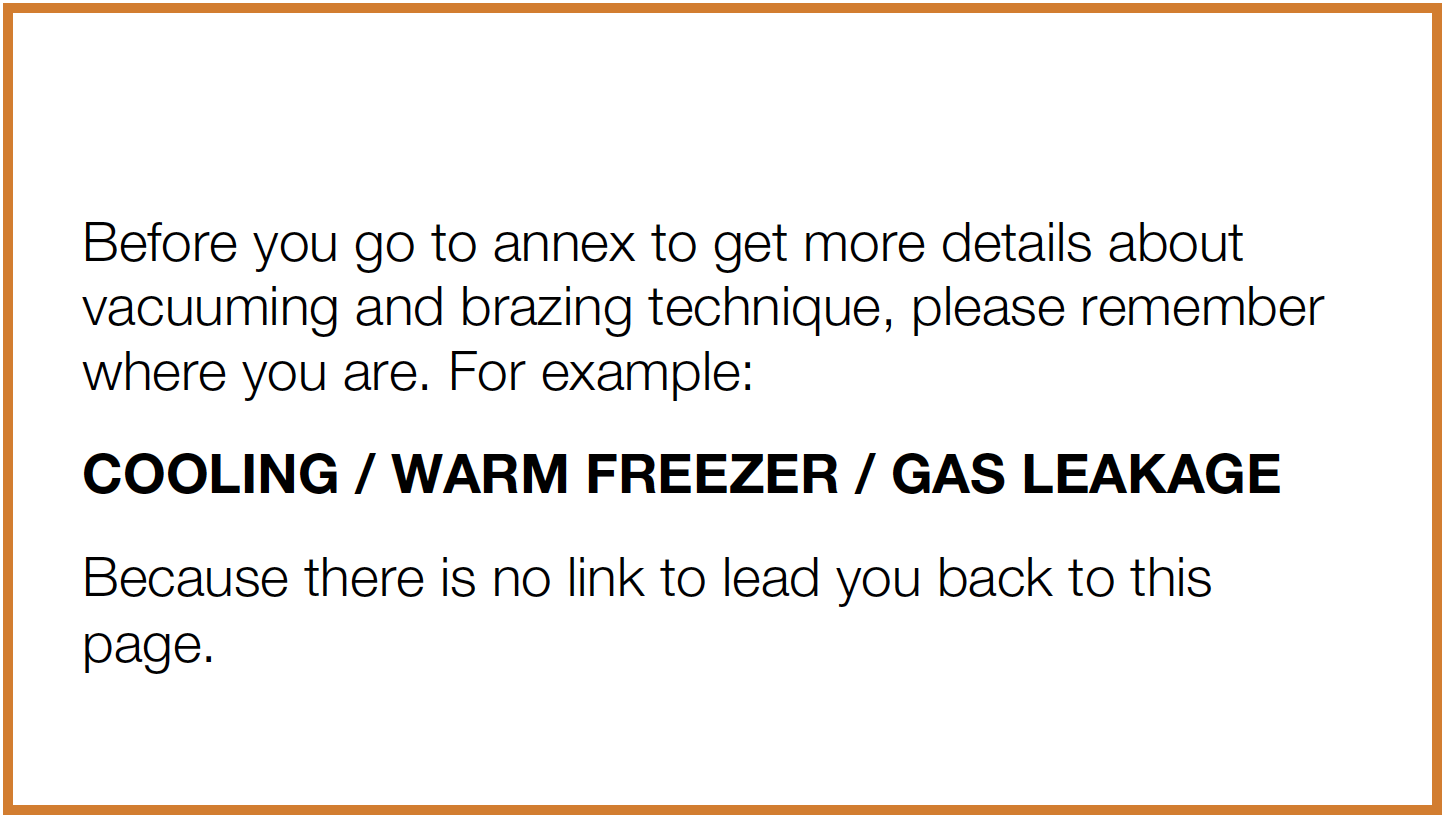
Step 5
Install quick connector onto re-brazed pipe.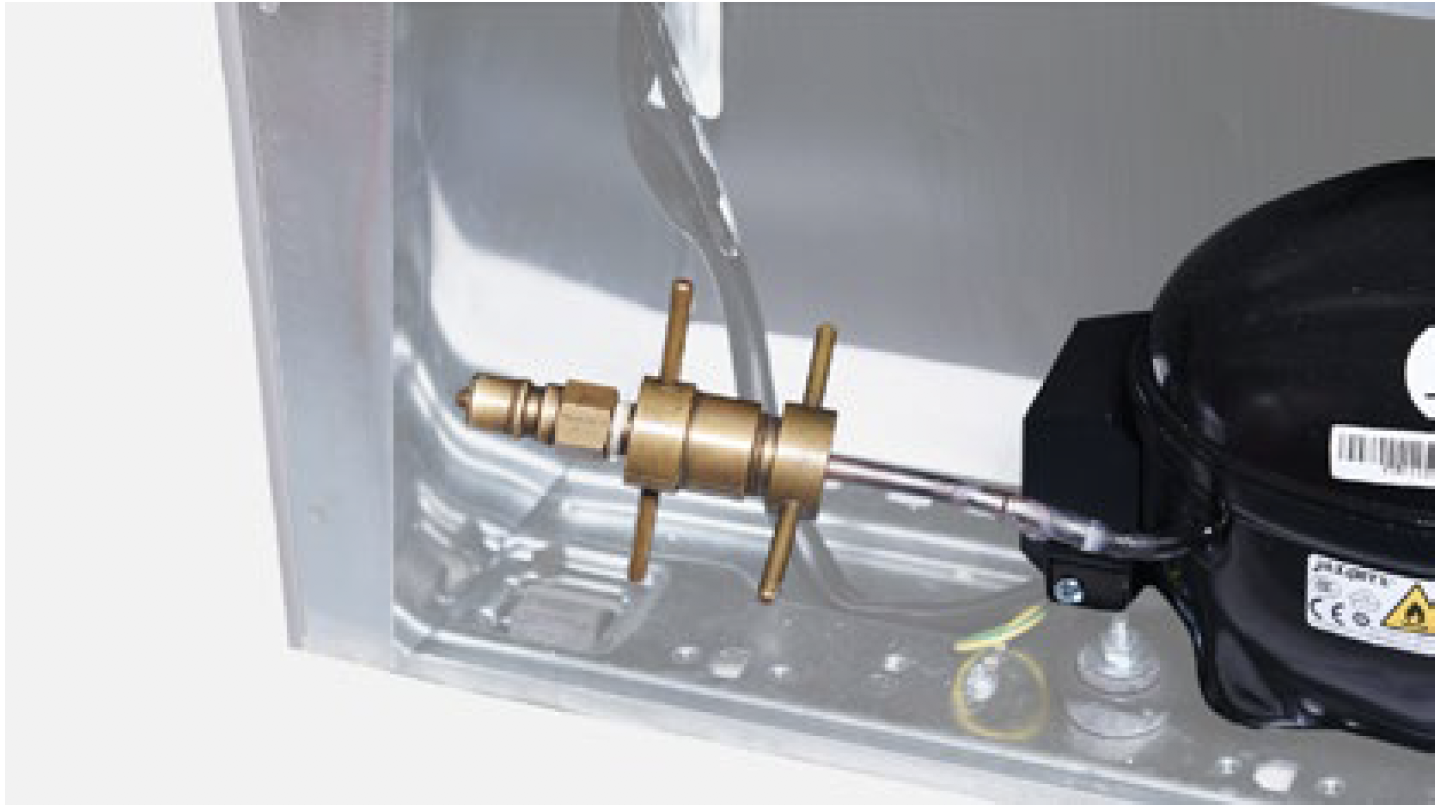
Step 6
Use pliers to cut the capillary off.
Step 7
Inject nitrogen (1.57Mpa) through quick connector into pipe for at least 3 min to blow left refrigerant away.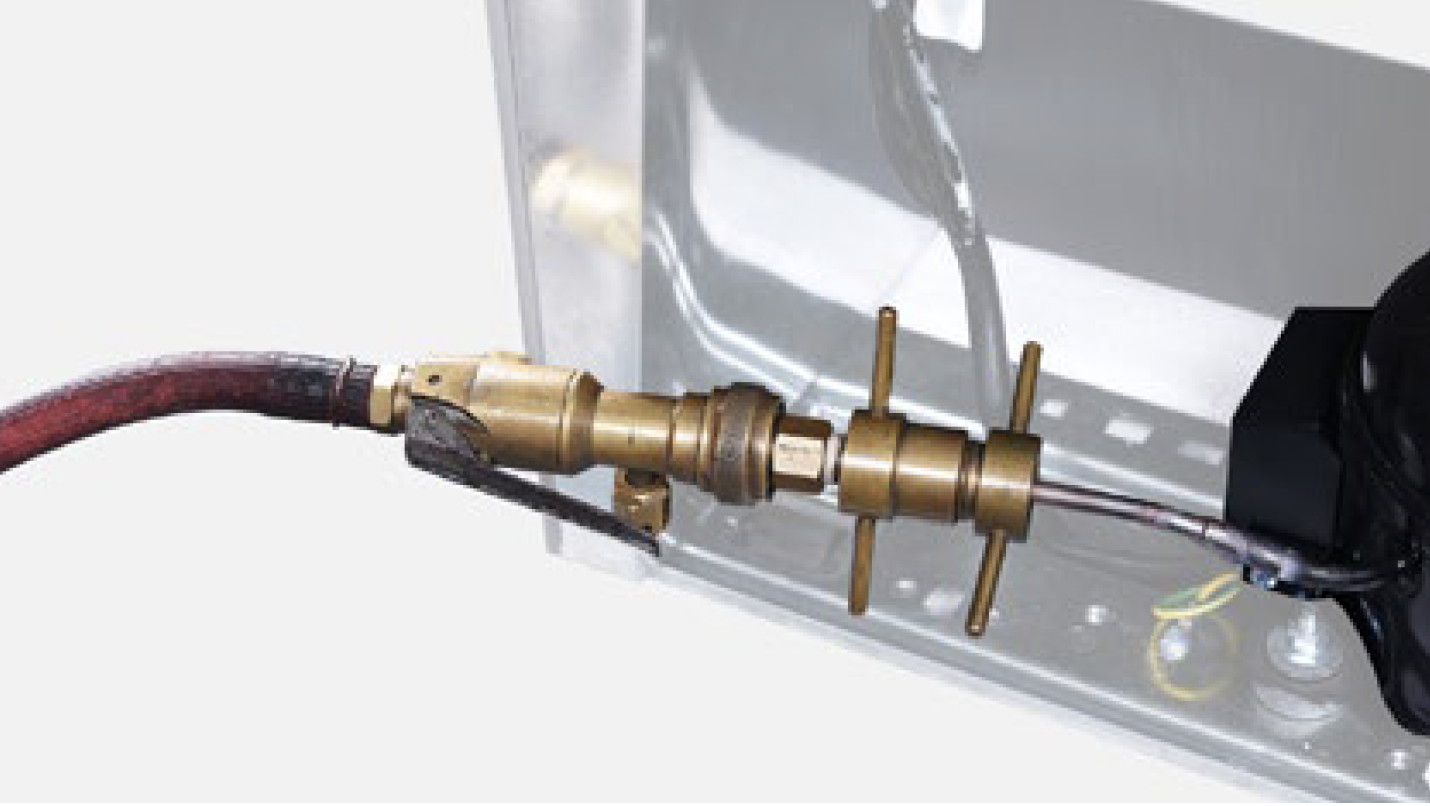
Step 8
Check whether oil is being ejected from the capillary using a piece of white paper.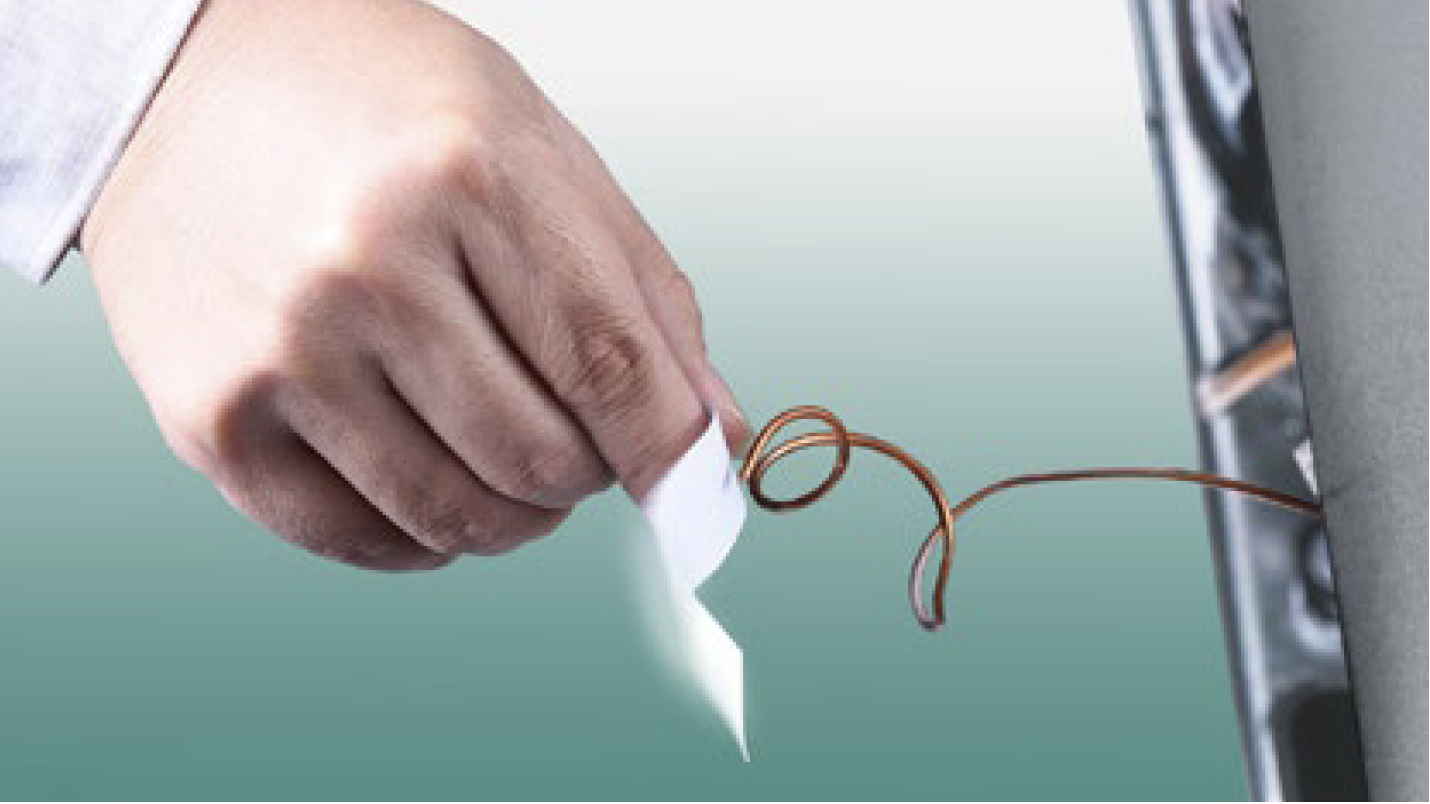
Step 9
Cut off exhaust pipe to check whether oil is coming out from compressor.
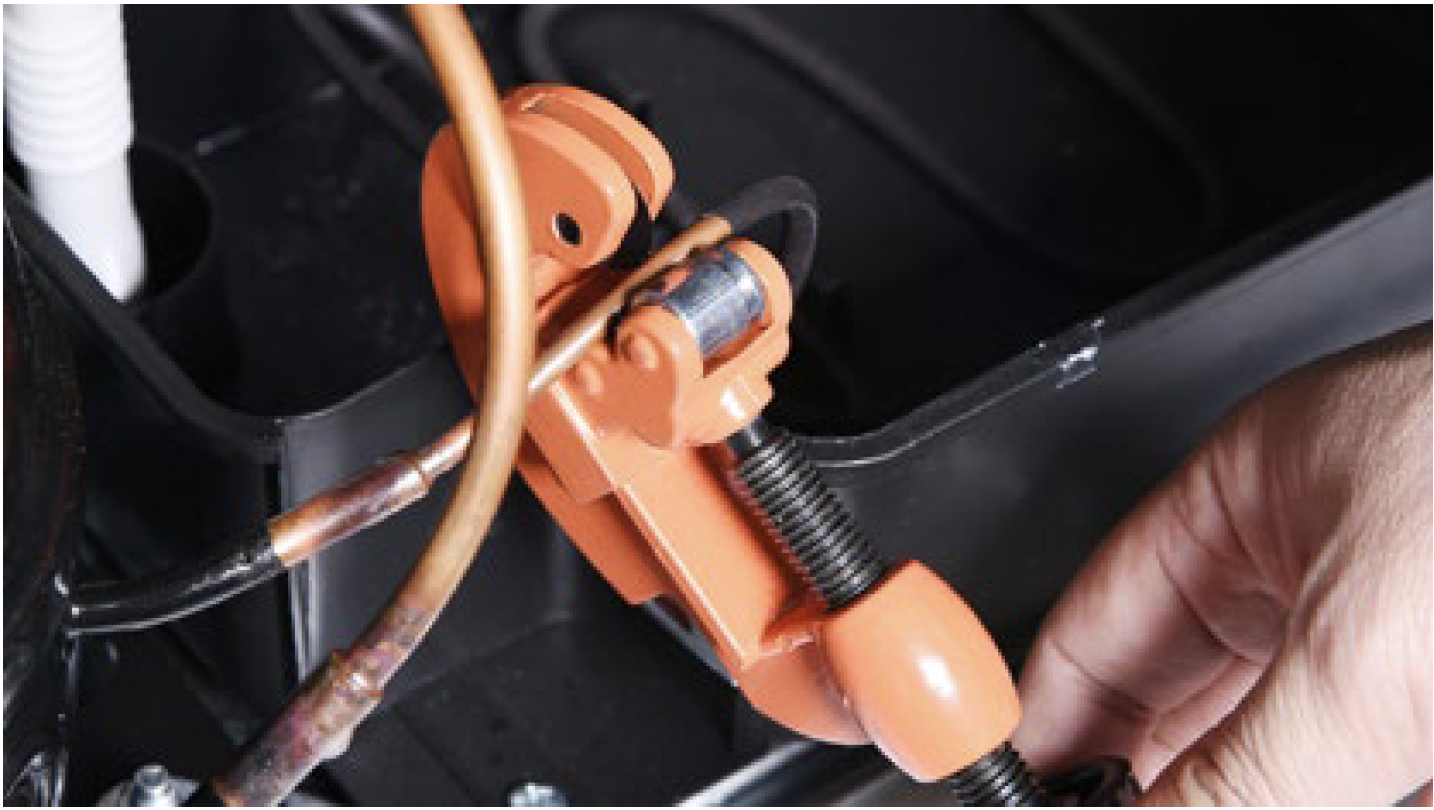
DIAGNOSIS 1

PROCEDURE 1
Step 1
Unscrew terminal cover.
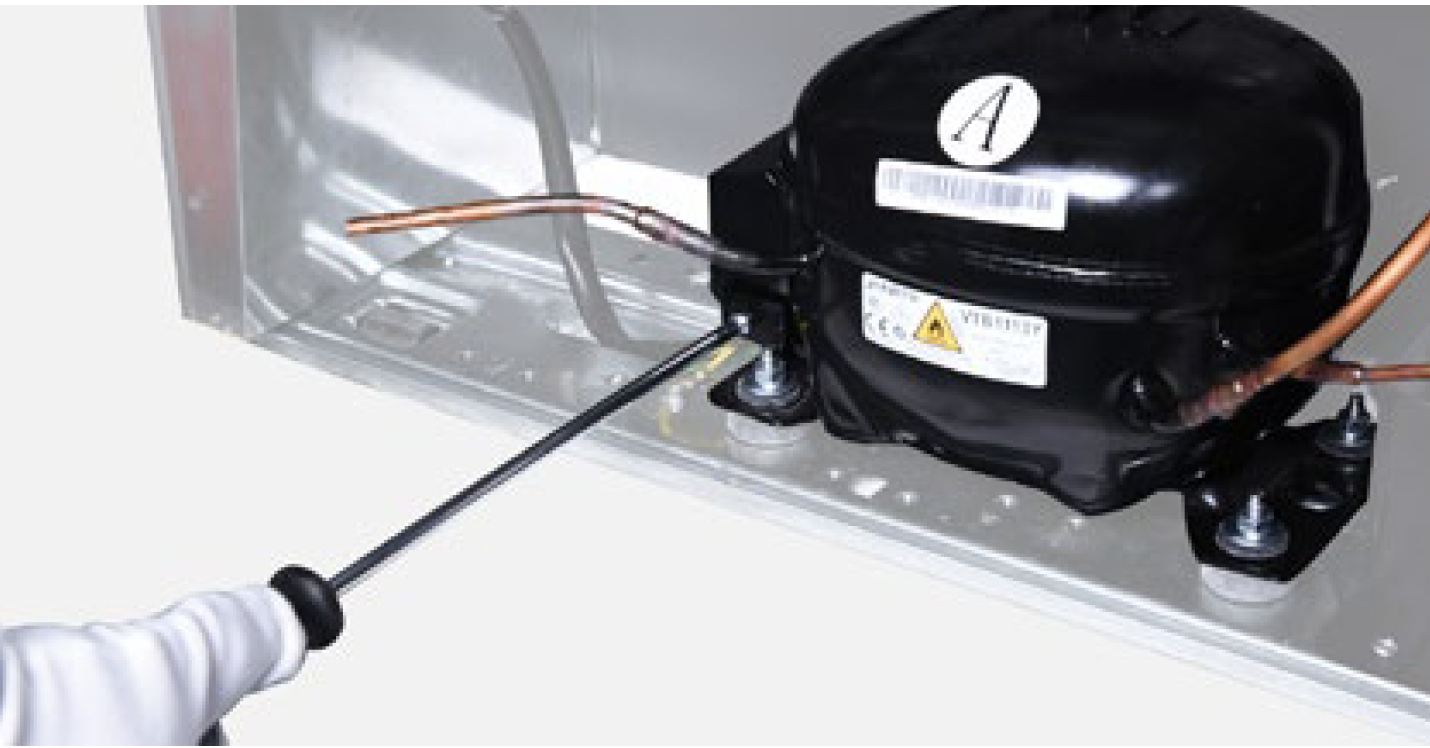
Step 2
Remove terminal cover.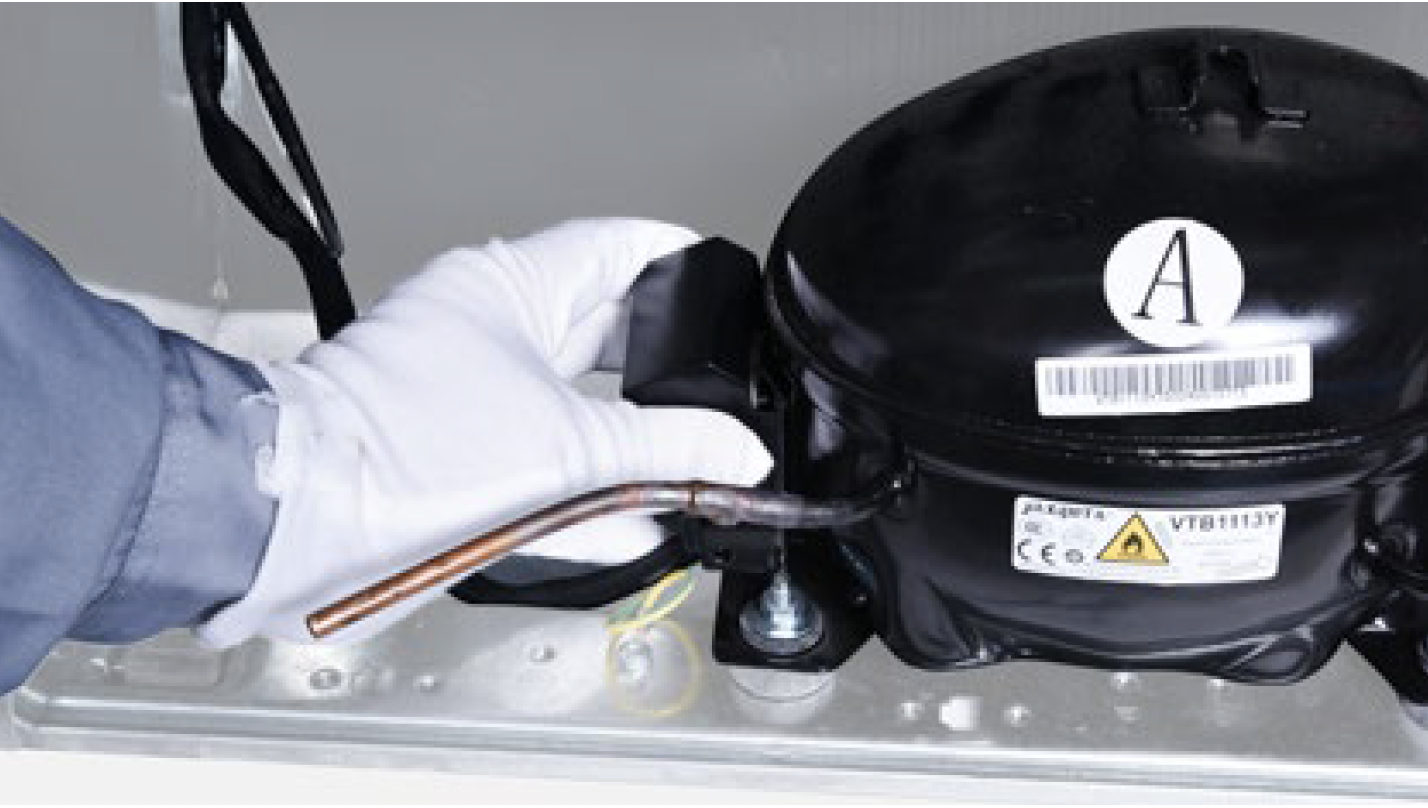
Step 3
Remove protector and starter.Step 4
Unscrew earthing wire.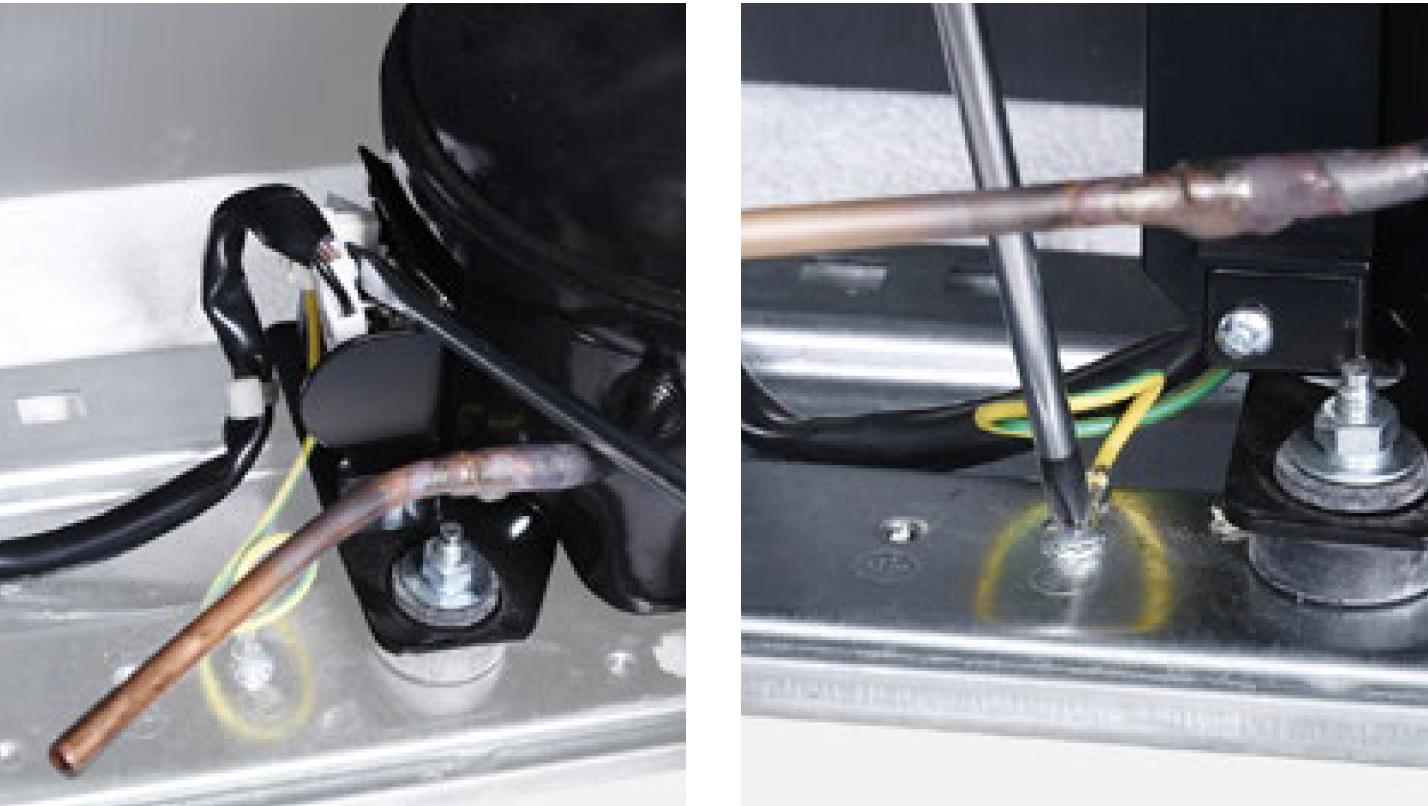
Step 5
Unscrew nut of compressor.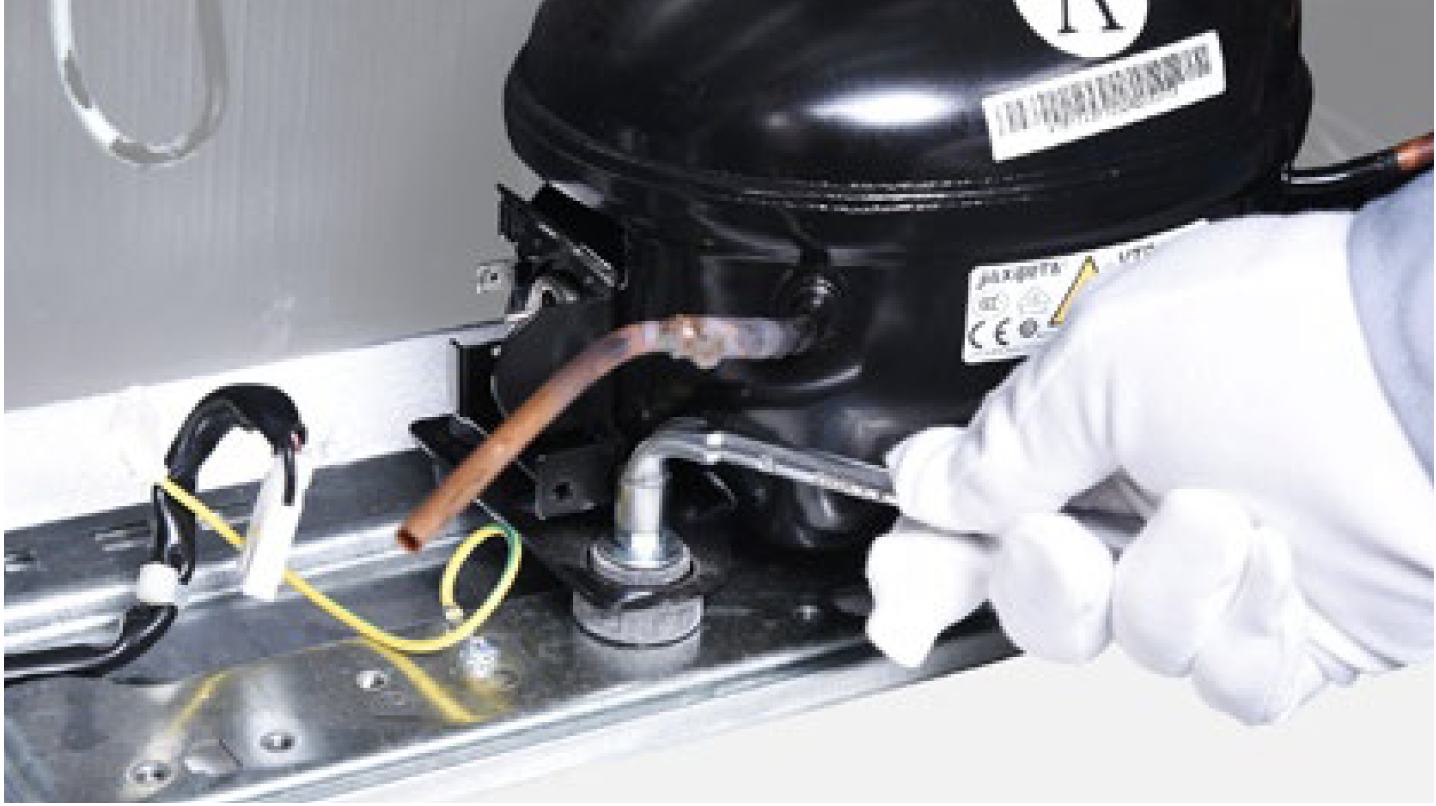
Step 6
Install a new compressor and tighten nuts onto compressor.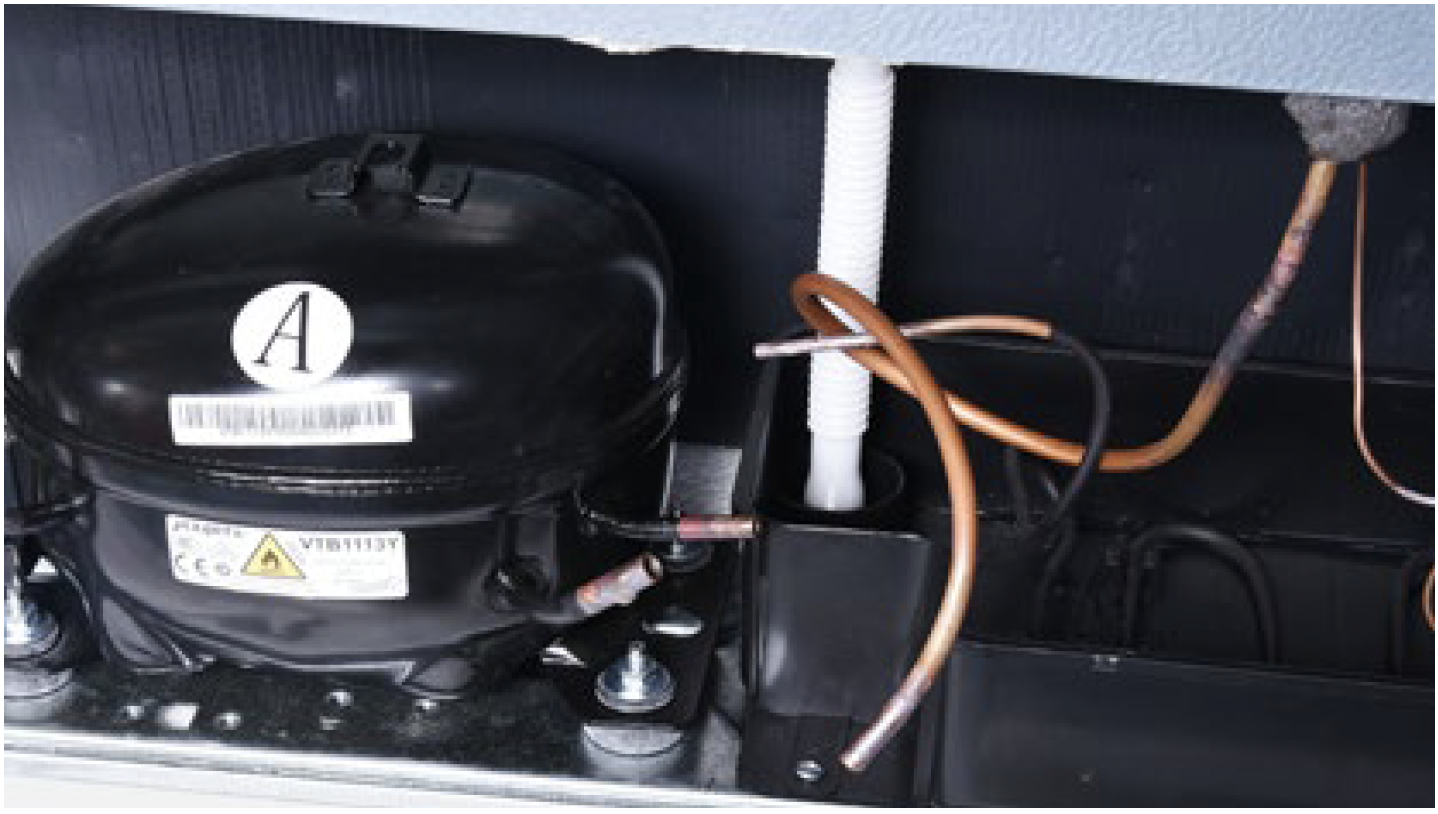
Step 7
Braze the joints of suction and exhasuting pipes.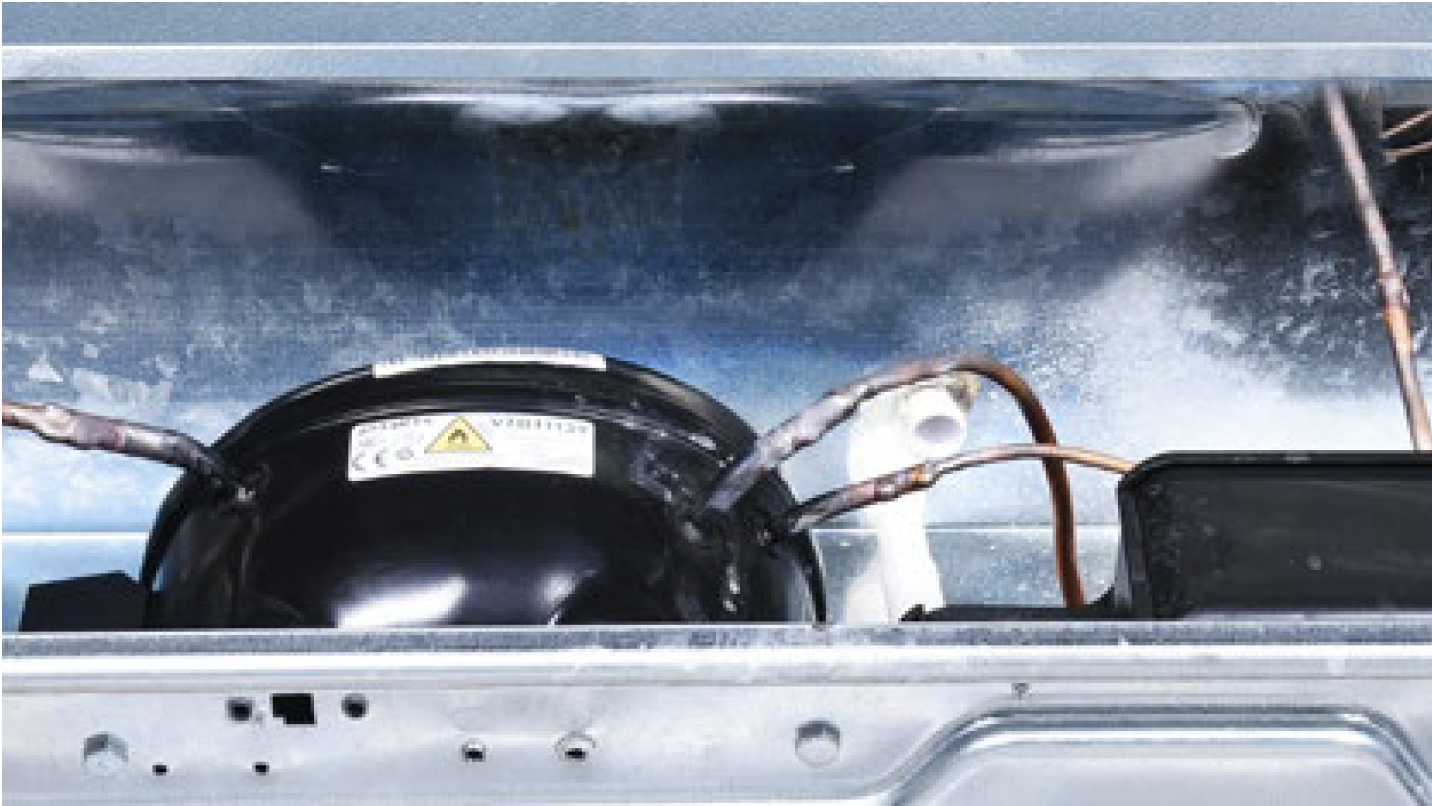
PROCEDURE 2
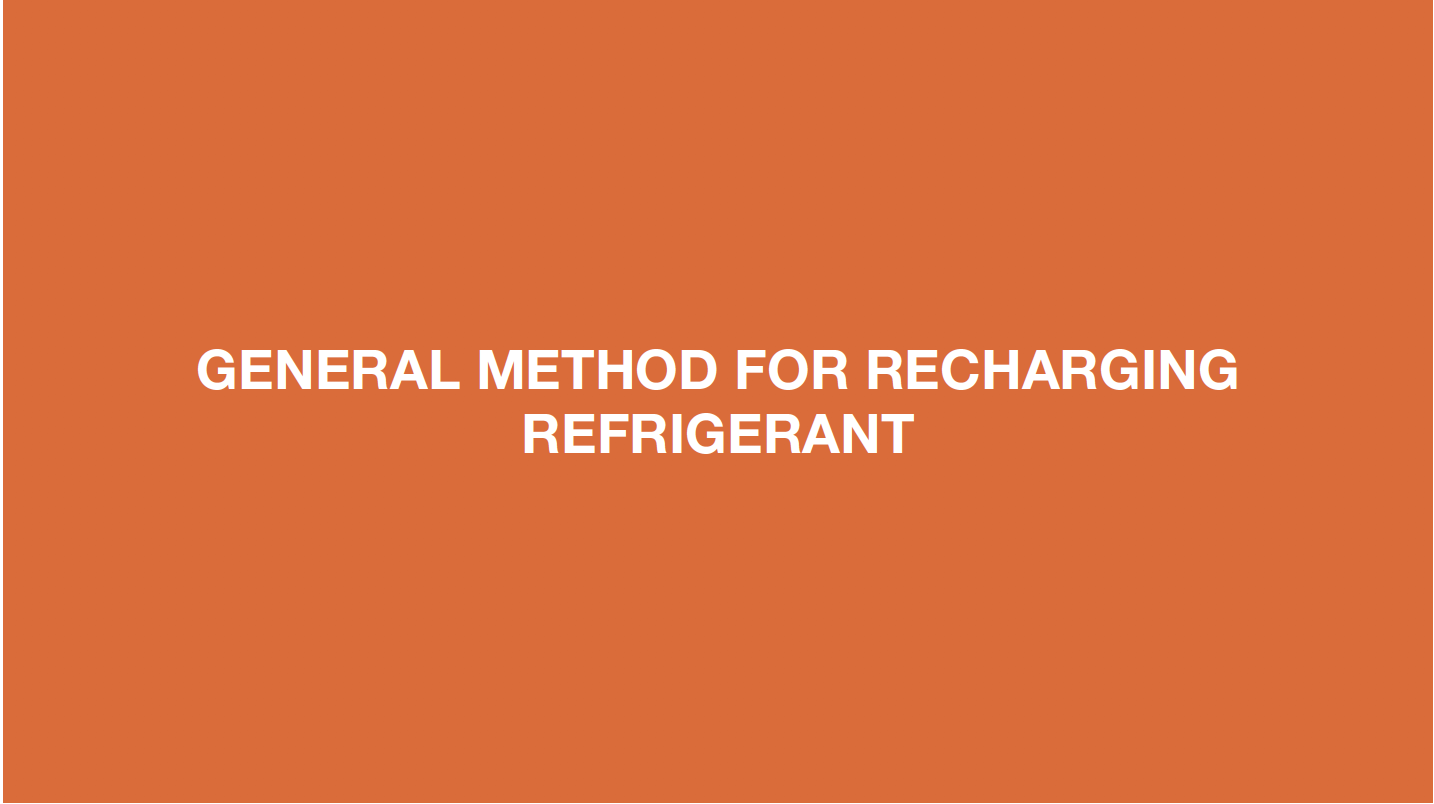
Step 1
Braze the joints of suction and exhasuting pipes.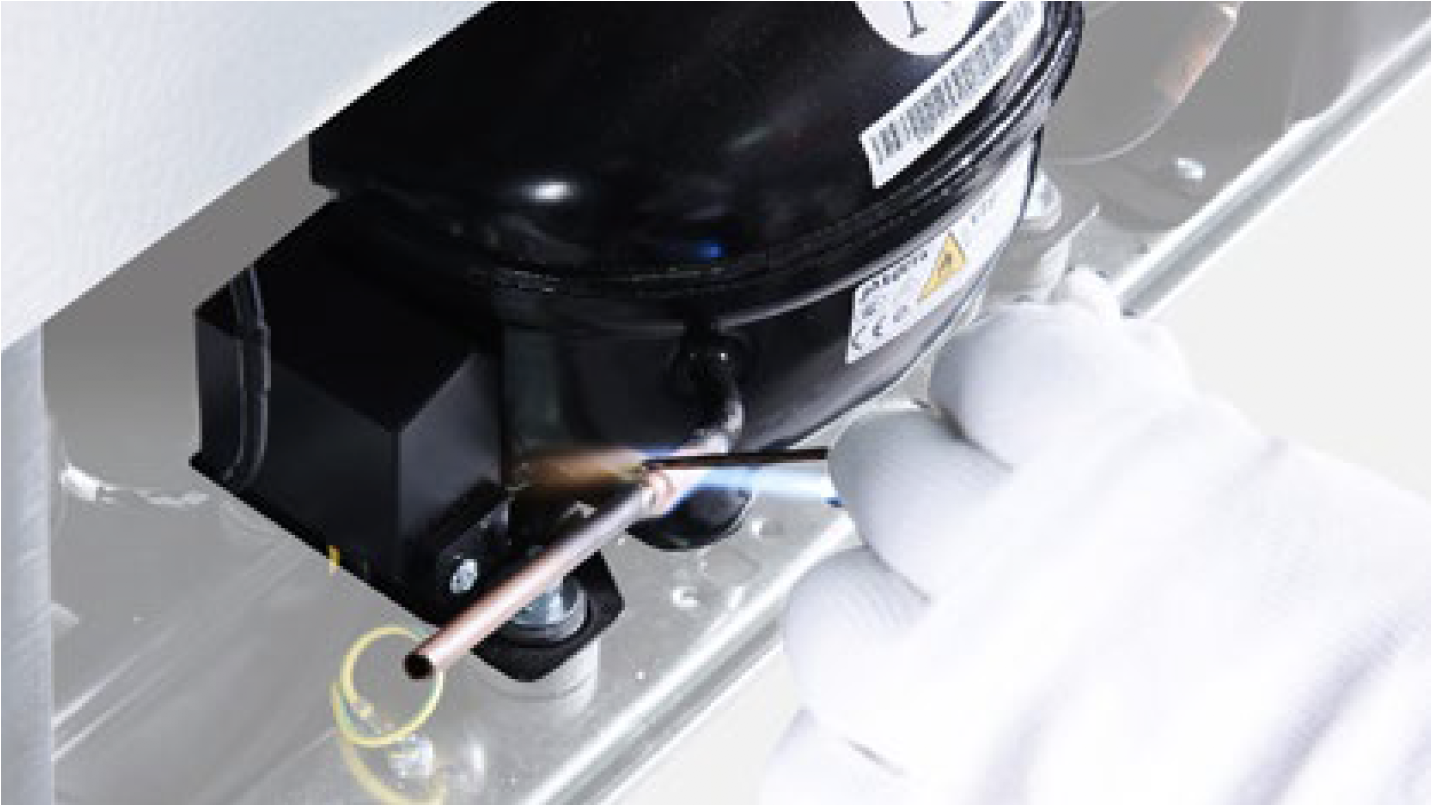
Step 2
Clean paint off brazed joint of drying-filter.Step 3
Cut off drying-filter.
Step 4
Cut off capillary and shake to remove the cut end.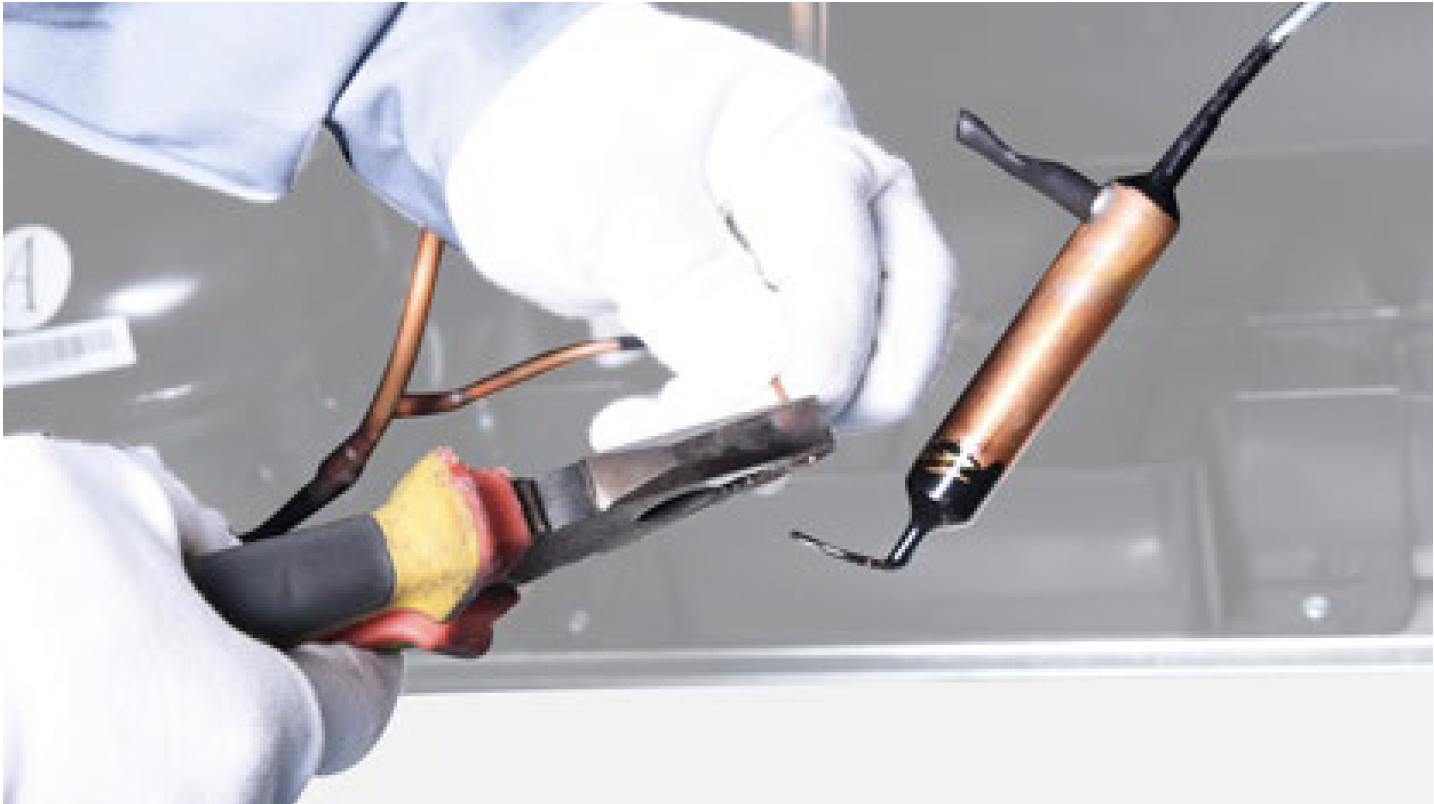
Step 5
Braze on a new drying-filter.
Step 6
Inject nitrogen (1.57Mpa) through quick connector into pipe for at least 3 min to blow left refrigerant away.
Step 7
Add quick connector onto processing pipe of drying-filter.Step 8
Perform a leakage test on brazed joints of drying-filter and compressor processing pipe.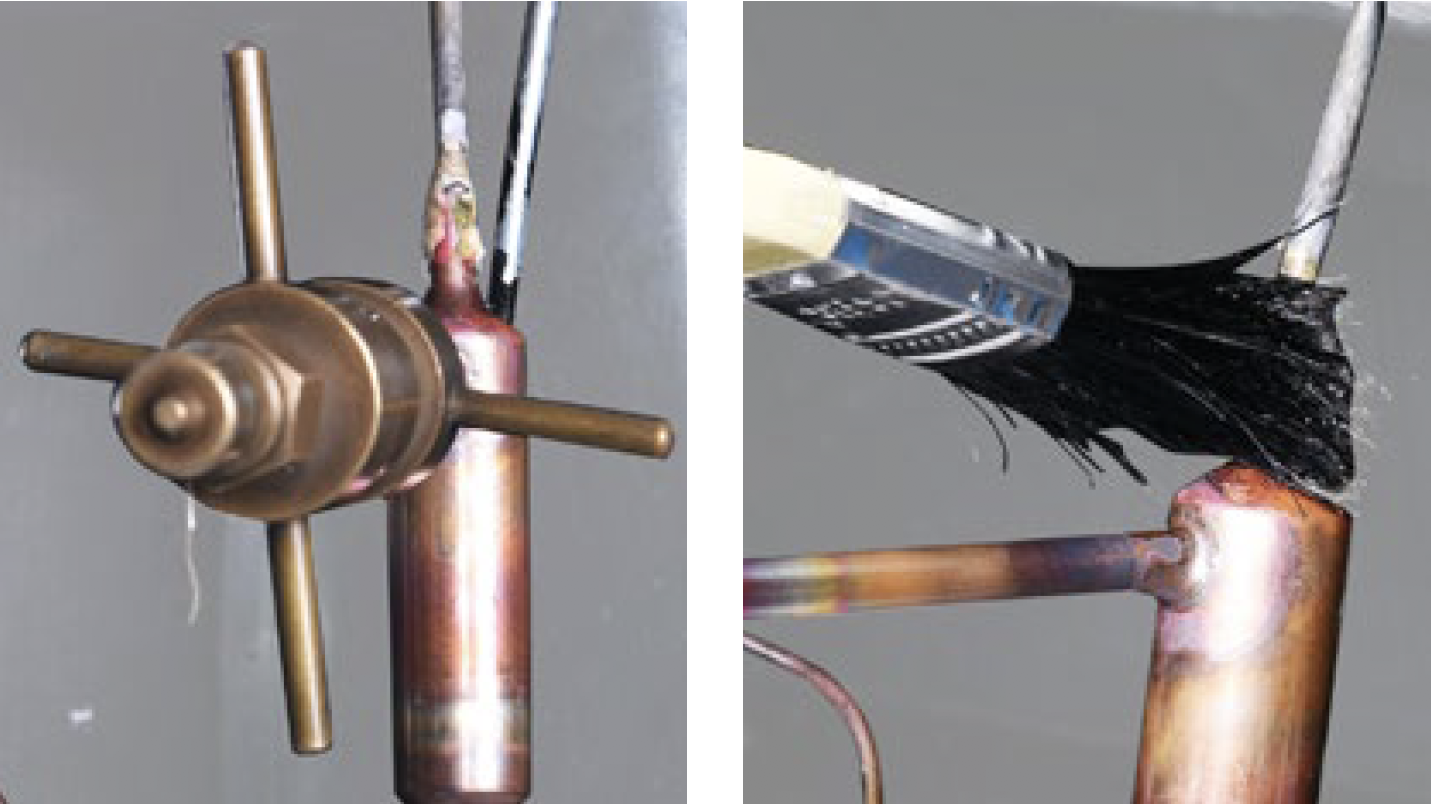
Step 9
Vacuum and recharge. Click below link to get more details for vocuuming and gas-charging requirements, go to Annex B2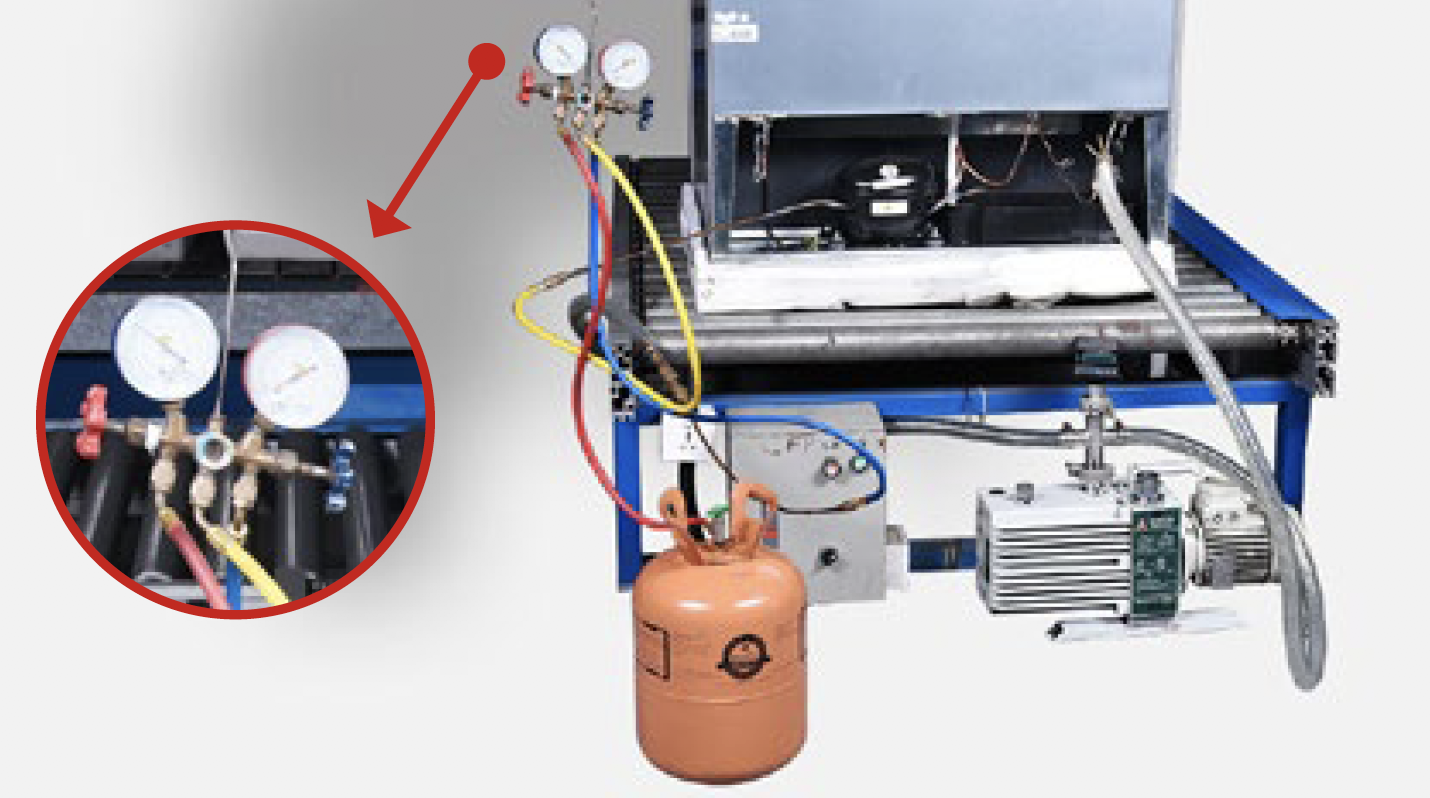
Step 10
Block processing pipe twice with locking pliers.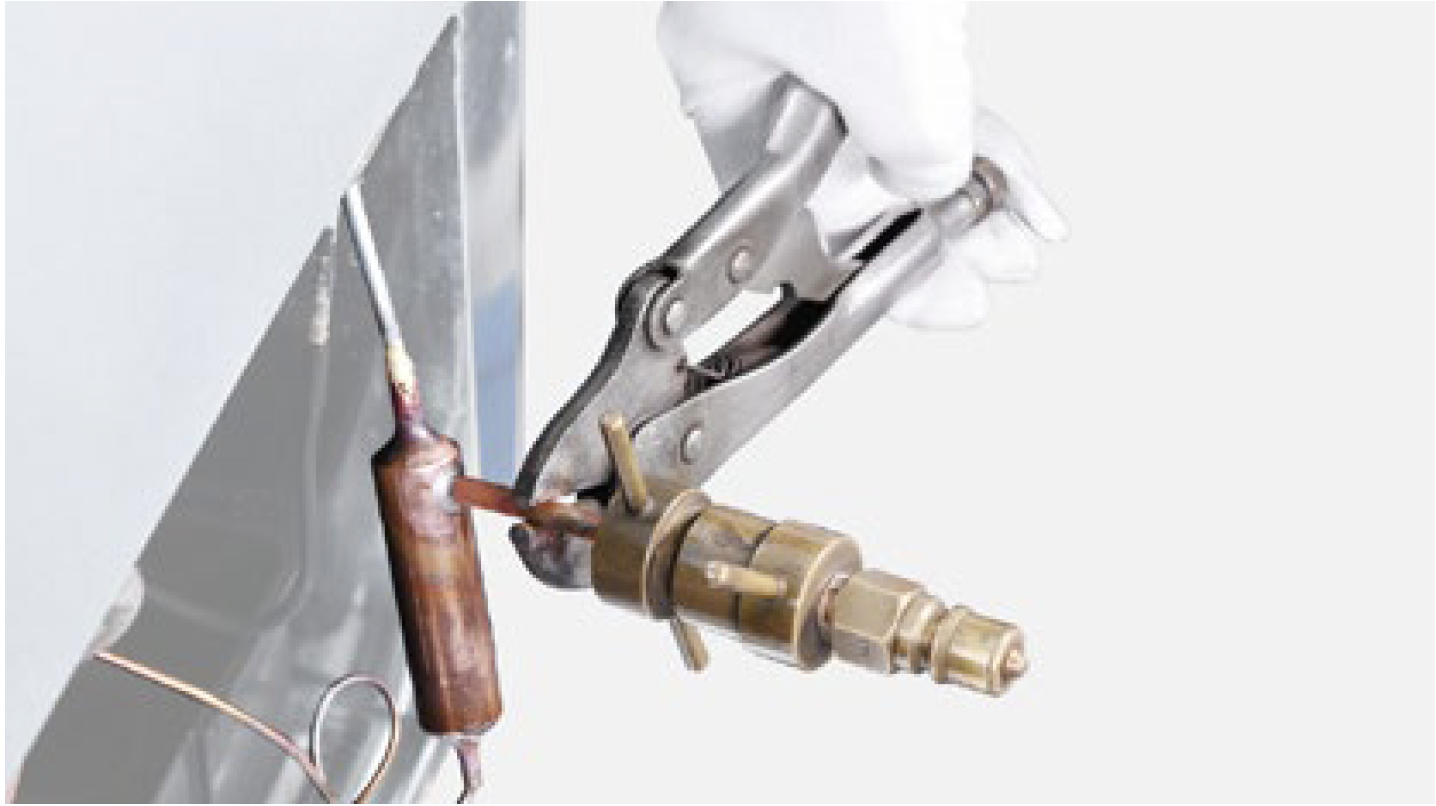
Step 11
Leave locking pliers on the second block and cut off the rest of the pipe by shaking.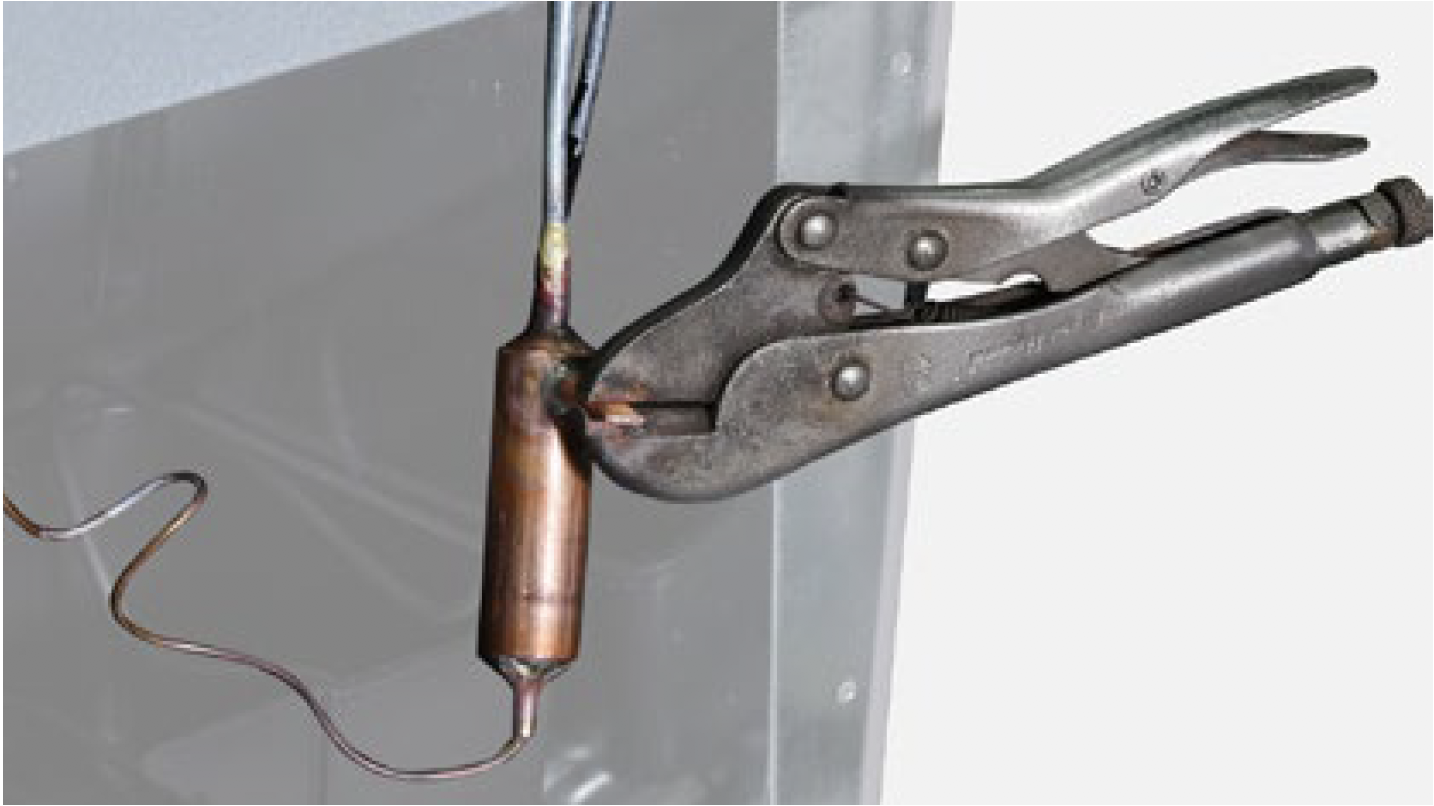
Step 12
Braze the ends and remove the pliers.